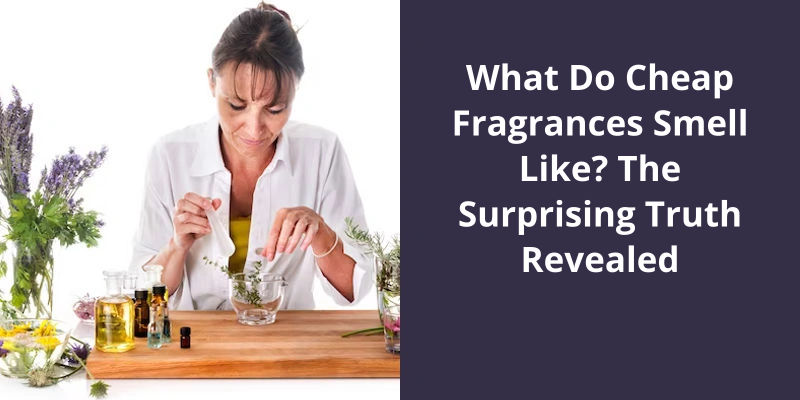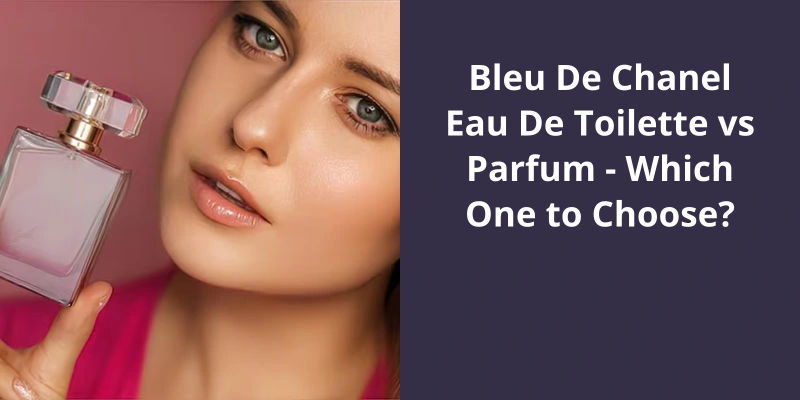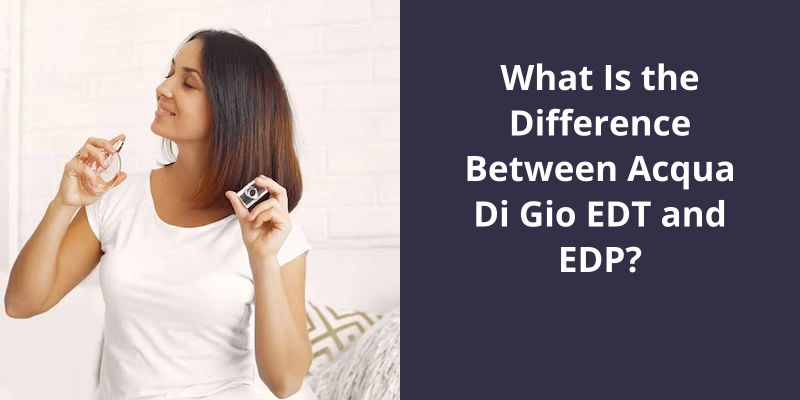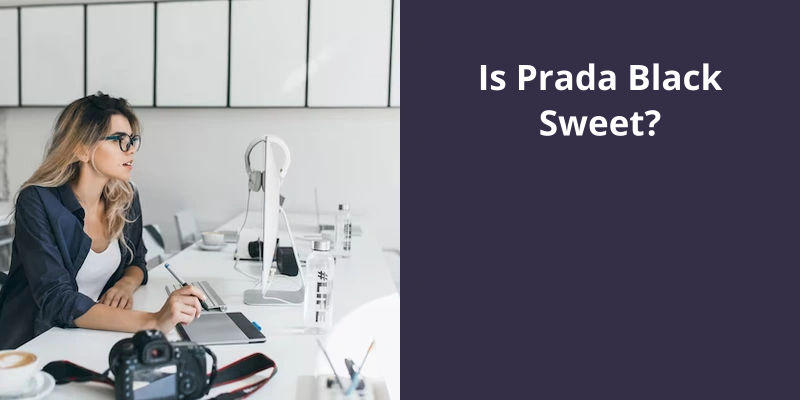Cheap fragrances typically have a synthetic scent, often overpowering and lacking the subtle nuances of more expensive perfumes. This is because they are manufactured with less expensive, synthetic ingredients instead of natural ones. Some may have a strong alcohol smell, as this cheap ingredient is often used as a filler. Their scent also tends to fade quickly, as they do not have the layers of notes that expensive perfumes have. While some inexpensive fragrances can still smell pleasant, they generally do not have the depth, longevity, and individuality of their more costly counterparts.

Can Cheap Perfume Smell Good?
However, this doesn’t necessarily mean that cheap perfume can’t smell good. It all boils down to personal taste and preferences. There are some affordable perfume brands out there that may surprise you with their quality and scent. The key is to do your research and shop around. You might just find a hidden gem that perfectly suits your style and budget.
In terms of the ingredients used in cheap perfume, they may not be as high-quality as those used in expensive perfumes. Cheaper perfumes may contain synthetic fragrances and fewer essential oils, whereas pricier perfumes prioritize natural ingredients. This may explain why cheap perfumes may not last as long or project as far as their more expensive counterparts. It just means that you may need to apply it more frequently throughout the day.
Some people may prefer complex, high-end scents, while others may gravitate towards simpler, affordable fragrances. It’s important to keep an open mind and try out different scents to find what works best for you. Remember, perfume is a personal expression of style and personality, so choose a scent that makes you feel confident and happy, regardless of it’s price tag.
The Differences Between Natural and Synthetic Fragrances in Perfumes
- Natural fragrances are derived from natural sources such as plant extracts, essential oils, and animal secretions.
- Synthetic fragrances are created in a laboratory using a combination of chemical compounds and may mimic natural scents or be completely new scents.
- Natural fragrances are often more complex and unique due to variations in growing conditions and extraction methods.
- Synthetic fragrances can be more consistent and predictable in scent due to their controlled manufacturing process.
- Natural fragrances may be more environmentally friendly and sustainable as they don’t require extensive chemical manufacturing.
- Synthetic fragrances may offer a wider variety of scent options as they can be created from a larger range of chemical compounds.
- Some people may have allergies or sensitivities to either natural or synthetic fragrances, and it’s important to choose products that work for your individual needs.
However, there are also other factors that can contribute to the similarities in scents such as the blending processes used by fragrance makers and the marketing strategies of perfume brands. In this article, we will delve into the science behind perfume making and explore why some of the most popular fragrances on the market have such similar scent profiles.
Why Do All Perfumes Smell the Same?
Additionally, perfumers often use synthetic molecules to create a certain scent profile, which can also result in a similar smell across different perfumes.
Another reason why perfumes can smell similar is due to marketing and consumer trends. This can also be influenced by the target audience and the desired image for the perfume.
High-quality natural ingredients can be expensive and difficult to obtain, resulting in many perfumers using similar, lower-quality ingredients.
The concentration of ingredients in a perfume can also affect it’s scent. Higher concentrations of certain ingredients can create a more unique scent, but this often comes at a higher cost for both the perfumer and the consumer.
Lastly, the regulations and safety guidelines for perfumes can also limit the range of ingredients and scents used. This can limit the creativity and uniqueness of perfumes and contribute to a similar scent profile across different brands and types of perfumes.
From similar ingredients and fragrance notes, to marketing trends and regulations, the perfume industry is complex and constantly evolving. Consumers may need to explore niche and independent brands to find truly unique and distinctive scents.
The History and Evolution of Perfumes and Fragrance Creation
Perfumes and fragrances have a long and fascinating history — dating back to ancient Egypt and Rome. Since then, many cultures have created unique fragrances using natural ingredients like herbs and flowers. In the 19th century, synthetic fragrances were developed, leading to the creation of modern perfumes and the mass production of fragrances. Today, perfume creation continues to evolve and adapt to changing tastes and trends.
Source: Why do all perfumes smell similar? – Quora
However, identifying fake fragrances isn’t always straightforward, and sometimes counterfeit products can be hard to distinguish from the real deal. It’s important to learn how to spot these fakes in order to avoid wasting your hard-earned money on an inferior product and potentially harming your health.
What Do Fake Fragrances Smell Like?
This refers to the trail of scent that lingers behind the wearer. However, the sillage of a fake fragrance is often much less refined and more cloying than the real thing. Essentially, a fake fragrance might smell like a chemical cocktail that doesn’t blend together well or a mixture of harsh, overpowering scents that leave you feeling nauseated.
Fake fragrances are also weak in their longevity. A counterfeit usually only lasts for a few hours, if you’re lucky. With a fake perfume, you might finish the entire bottle within a few days or weeks, whereas a genuine fragrance can last for months or even years with normal use. A fake perfume feels like hard work, as you need to reapply it frequently to keep the scent lingering.
Lastly, fake fragrances aren’t cruelty-free. The companies that manufacture them use cheap, low-quality ingredients, and often, test their products on animals. The animal testing is cruel, and the end product is of poor quality. It’s always better to invest in an original, cruelty-free fragrance that’s more expensive but good for you, the planet and the animals. To get the full aroma of a fragrance, one should always opt for the original version over a fake one.
The Dangers of Using Fake Fragrances on Your Skin
Using fake fragrances on your skin can be harmful to your health. These fragrances can contain toxic ingredients that can cause allergic reactions, skin irritation, and even hormone disruption. It’s important to choose natural, organic, or fragrance-free products to avoid the harmful effects of fake fragrances on your skin.
Now that we understand why cheap perfume often smells like alcohol, we can delve further into the differences between high-end fragrances and their more budget-friendly counterparts. There are a multitude of factors that contribute to the price point of a scent, and understanding the intricacies of fragrance creation can open your nose and your mind to a whole world of aromatic possibilities.
Why Does Cheap Perfume Smell Like Alcohol?
Fragrances have become a crucial aspect of our daily routines, especially when it comes to the game of attraction and appeal. The market for fragrances has been flooding up with different quality options ranging from the high-end, luxury fragrances to more economical options, which includes discounted perfumes and body sprays. However, there’s one common question that many people have been seeking an answer to, why does a cheaper fragrance smell like alcohol?
To begin with, the inclusion of alcohol is an essential, customary, and widely accepted component in fragrances. Alcohol possesses some chemical properties that assist in the process of diluting and distributing the concentrated perfume oils used in the fragrance. Consequently, cheap perfumes contain more alcohol as compared to expensive, higher-end fragrances.
Therefore youll discover that the scent won’t last as long as with a more expensive perfume. As the alcohol evaporates, it also takes the scent with it, so the fragrances longevity is shortened. Because of this, you may end up using a cheaper fragrance more frequently to achieve the same effect as a higher-end, more concentrated fragrance.
This added smell is also responsible for the short-lived fragrance, making it increasingly necessary to reapply the scent frequently. It’s generally crucial that the molecules in a fragrance can be transmitted through the air to be picked up by the nose; however, scent molecules are tiny and can quickly evaporate or become adhered to a surface, which happens more frequently when alcohol is the carrier.
Therefore, if youre looking for a longer lasting fragrance, it’s always better to invest in a high-end perfume that should last you longer. It’s also important to note that a cheap or discounted perfume isnt necessarily low quality so long as you pick the right one.
How to Distinguish Between High-Quality and Low-Quality Perfumes Based on Their Ingredients
- Look for natural ingredients instead of synthetic ones.
- Avoid perfumes that contain alcohol as the main ingredient.
- Choose perfumes with a higher concentration of essential oils for a longer-lasting fragrance.
- Read the label and look for specific notes, such as “jasmine” or “vanilla,” instead of generic descriptions like “floral” or “woodsy.”
- Beware of fragrances that list “fragrance” or “parfum” as an ingredient without specifying what it contains.
- Consider the price – high-quality perfumes are typically more expensive due to the cost of natural ingredients.
- Test the fragrance on your skin and see how it smells throughout the day before purchasing.
- Research the brand and read reviews to see if others have had positive experiences with their perfumes.
However, alcohol-based perfumes have their own unique advantages and benefits that make them a popular choice among consumers.
What Are the Benefits of Alcohol Based Perfume?
There are also oil-based perfumes, which can be better for people with sensitive skin. However, alcohol-based perfumes have their own benefits that can’t be ignored. They can last longer than oil-based perfumes, as the alcohol helps the scent molecules to evaporate more slowly. Additionally, alcohol-based perfumes can be less greasy or oily than oil-based perfumes, making them more comfortable to wear.
Alcohol-based perfumes also have the benefit of being easier to apply. Spraying a perfume is quick and easy, and allows for even distribution of the scent. This can be especially helpful when you’re in a rush and don’t have time to carefully apply an oil-based perfume with a dropper or rollerball. Alcohol-based perfumes can also be used on a wider range of surfaces, including clothing and hair, which can help to prolong the scent.
Because alcohol is such a versatile solvent, it can be used to create a wide range of perfume notes and fragrances. From floral to citrus to musk, there’s an alcohol-based perfume for everyone. Additionally, because alcohol-based perfumes tend to be more popular, more brands and designers offer them, providing even more choices for the consumer.
While they may not be right for everyone, their popularity shows that they’re a tried-and-true choice for many.
The Science of Alcohol-Based Perfumes: How Alcohol Plays a Role in the Scent of Perfumes and How It Affects the Fragrance’s Longevity.
- Alcohol acts as a solvent in perfumes, allowing the fragrance oils to blend together smoothly.
- The percentage of alcohol in a perfume can affect the intensity and longevity of the scent.
- Higher concentrations of alcohol can cause the fragrance to evaporate more quickly, leading to a shorter lifespan.
- Alcohol-based perfumes are more common in warmer climates, as they tend to be lighter and fresher.
- Alternative solvents, such as oil or water, can be used in perfumes for different effects on the fragrance.
Conclusion
Ultimately, fragrance preference is subjective and personal, and even cheap fragrances can evoke pleasant memories and emotions. However, it’s important to keep in mind that quality ingredients and careful crafting can make a significant difference in the overall smell and experience of a fragrance.





